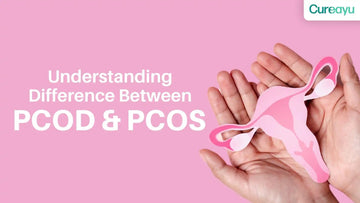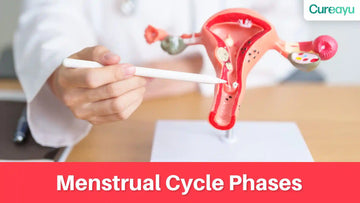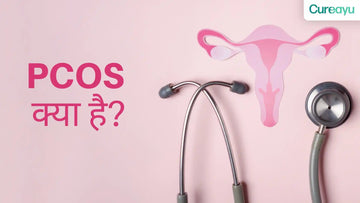In today’s health-focused world, the terms PCOD and PCOS are commonly used, often causing confusion due to their similarity. However, while they may sound alike, PCOD (Polycystic Ovary Disease) and PCOS (Polycystic Ovary Syndrome) are distinct conditions with unique characteristics. In this blog, we’ll explore the difference between PCOS and PCOD, their symptoms, and the appropriate treatments for each condition.
What Is PCOD?
Polycystic Ovary Disease (PCOD) is a hormonal disorder in which the ovaries become enlarged and produce immature eggs that eventually turn into cysts. This condition affects many women and can cause various health complications.
Causes of PCOD: Though the exact cause of PCOD is not fully understood, several factors are believed to contribute, including:
- Hormonal imbalances: Fluctuations in estrogen, progesterone, and androgen levels can interfere with ovarian function.
- Insulin resistance: Insulin issues can disrupt hormone production, aggravating symptoms.
- Genetics: A family history of PCOD increases the likelihood of developing the condition.
PCOD Symptoms:
- Irregular Menstrual Cycles: Women with PCOD often have fewer than nine periods a year or experience prolonged menstrual cycles.
- Excessive Facial and Body Hair: Increased androgen levels can lead to excessive hair growth (hirsutism) in unwanted areas.
- Acne and Oily Skin: Hormonal imbalances can result in acne and excess oil production.
- Weight Gain: Unexplained weight gain is common, even in women who maintain a healthy lifestyle.
- Infertility: PCOD can make ovulation irregular, complicating conception.
Also Read: Unwinding the Mystery: Can Pregnancy Occur in PCOD
PCOD Treatment:
- Lifestyle Changes: A balanced diet and regular exercise are vital in managing PCOD. Weight loss can help regulate menstrual cycles.
- Hormonal Birth Control: Birth control pills can help regulate hormones, reduce androgen levels, and improve symptoms like acne and excess hair growth.
- Insulin-Sensitizing Medications: Drugs like metformin help control insulin levels and improve menstrual regularity.
- Fertility Treatments: If conception is difficult, medications like clomiphene or IVF may be used.
What Is PCOS?
Polycystic Ovary Syndrome (PCOS) is a more complex endocrine disorder that affects multiple systems in the body, beyond just the ovaries. It is a leading cause of infertility and can affect a woman’s overall health.
Causes of PCOS: Like PCOD, the causes of PCOS are not entirely understood, but it is believed that insulin resistance, hormonal imbalances, and genetics play crucial roles. Elevated levels of insulin and androgens disrupt ovulation, resulting in the hallmark symptoms of PCOS.
PCOS Symptoms:
- Irregular or Absent Periods: Women with PCOS often experience irregular menstruation or even complete cessation of periods due to lack of ovulation.
- Heavy Bleeding: When menstruation does occur, it can be unusually heavy, leading to anemia.
- Excessive Hair Growth: Androgen excess causes unwanted hair growth on the face, chest, and back.
- Acne, Oily Skin, and Dandruff: Hormonal imbalances cause skin problems like acne, oiliness, and scalp issues.
- Weight Gain: PCOS makes it difficult for many women to lose weight, especially around the waist.
- Infertility: PCOS is one of the leading causes of infertility due to disrupted ovulation.
Also Read: The Ultimate Guide to Ayurvedic Herbs and Their Remarkable Benefits
PCOS Treatment:
- Lifestyle Adjustments: A nutritious diet, regular exercise, and maintaining a healthy weight are critical in managing PCOS.
- Hormonal Birth Control: Birth control pills help regulate menstruation and reduce androgen levels.
- Anti-Androgen Medications: Drugs like spironolactone are prescribed to lower androgen levels and treat excessive hair growth and acne.
- Insulin-Sensitizing Drugs: Metformin improves insulin resistance and regulates menstrual cycles.
- Fertility Treatments: Clomiphene or IVF are often used to address infertility caused by PCOS.
PCOD and PCOS: Key Differences
Although both conditions share some symptoms, they are different in nature. Let’s break down the PCOS and PCOD difference:
- Nature of the Disorder:
- PCOD is primarily an ovarian disorder characterized by multiple cysts.
- PCOS is a broader endocrine disorder that affects various systems in the body, not just the ovaries.
- Symptoms:
- Both PCOD and PCOS cause irregular periods and weight gain, but PCOS often includes more severe symptoms like heavy bleeding, dandruff, and no periods at all.
- Diagnosis:
- PCOD is mainly diagnosed through ultrasound, where multiple small cysts are visible.
- PCOS requires a more comprehensive diagnosis involving blood tests, symptom analysis, and ultrasound.
- Treatment Approach:
- Both conditions can be managed through lifestyle changes, hormonal therapies, and medications. However, the treatment for PCOS may be more prolonged and require additional medications due to its systemic nature.
- Impact on Fertility:
- Both conditions can cause infertility, but PCOS tends to have a more profound impact on fertility due to the severity of ovulation issues.
Conclusion
Understanding the difference between PCOD and PCOS is vital for proper diagnosis and treatment. While they share some overlapping symptoms, their causes, and severity differ. Early detection and management through lifestyle changes and medical intervention can significantly improve the quality of life for women dealing with these conditions. If you experience any of these symptoms, consult with a healthcare provider to determine whether you have PCOD or PCOS and to explore the best treatment options.
This comprehensive understanding of PCOD and PCOS will help in navigating these conditions effectively for better reproductive health and overall well-being.
Also Read: A Comprehensive Guide to Piles: Best Foods and Diet for Treatment












